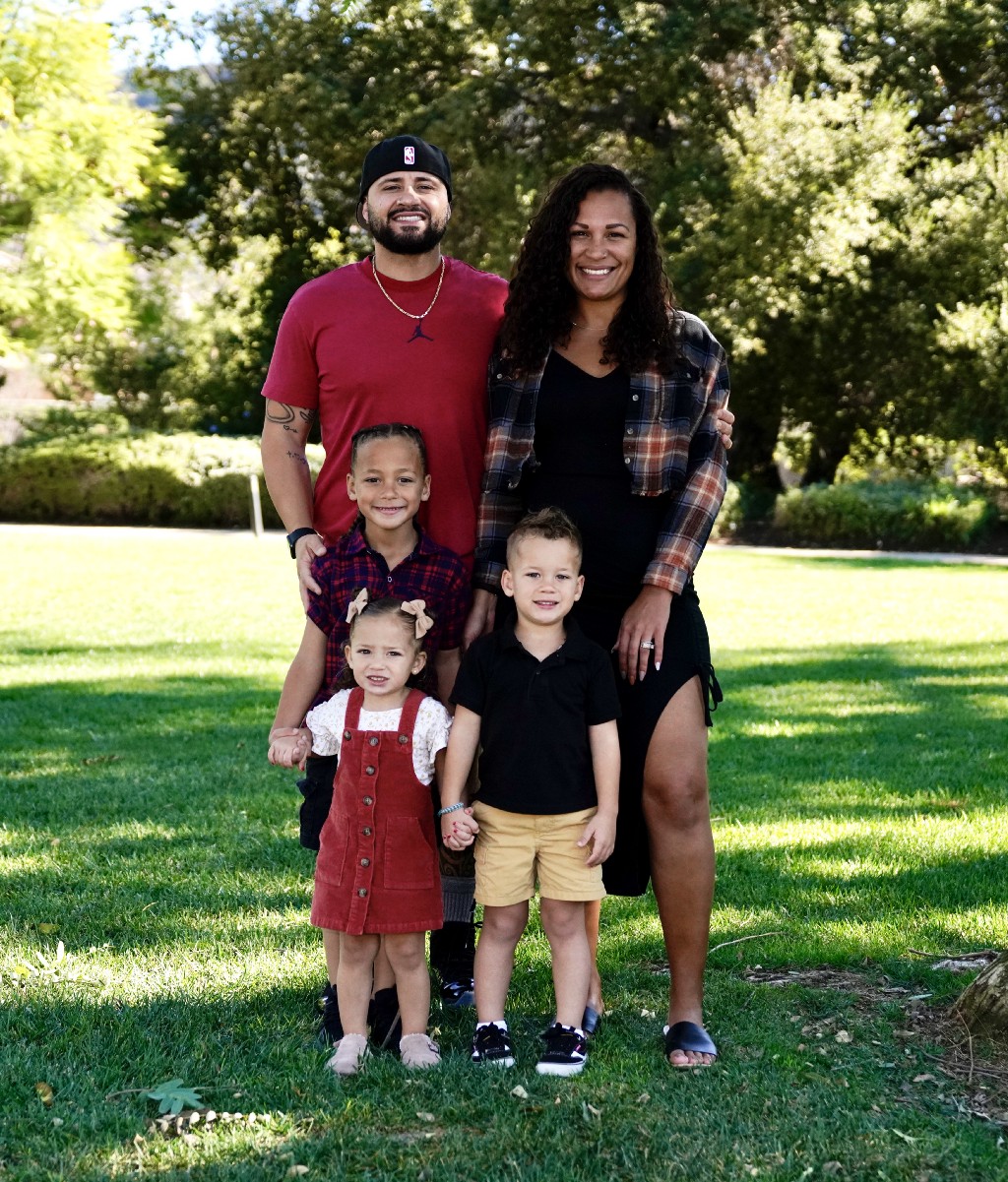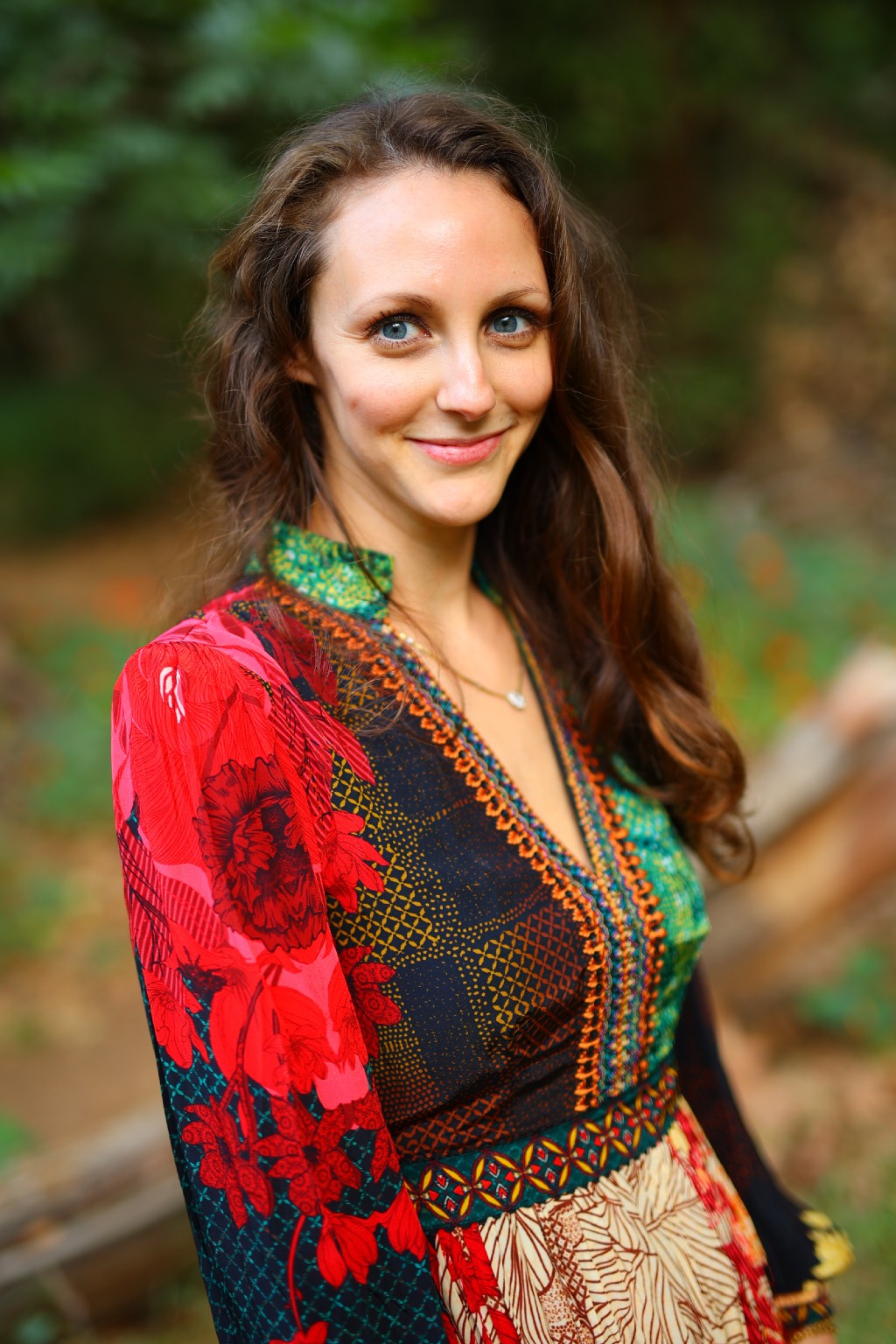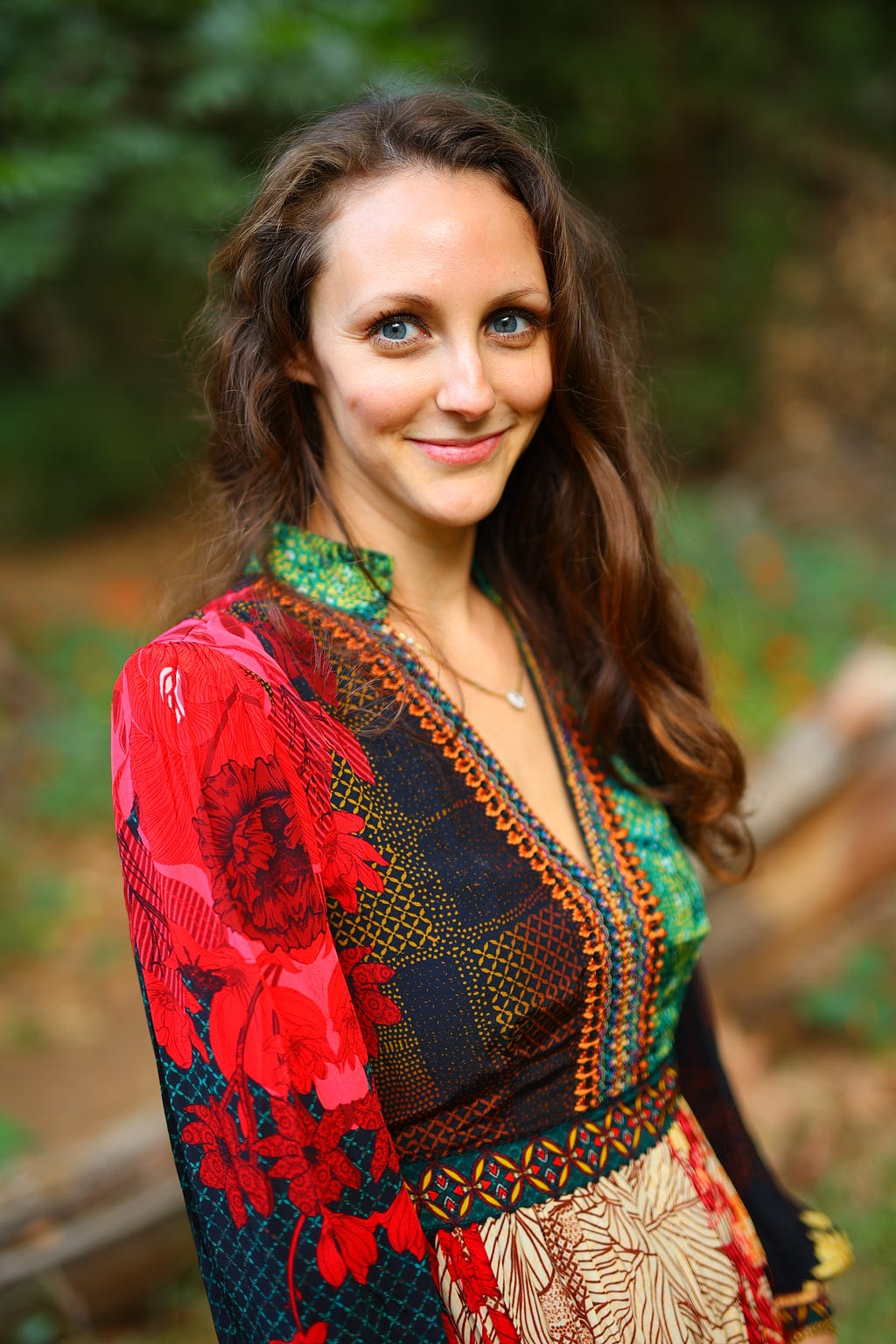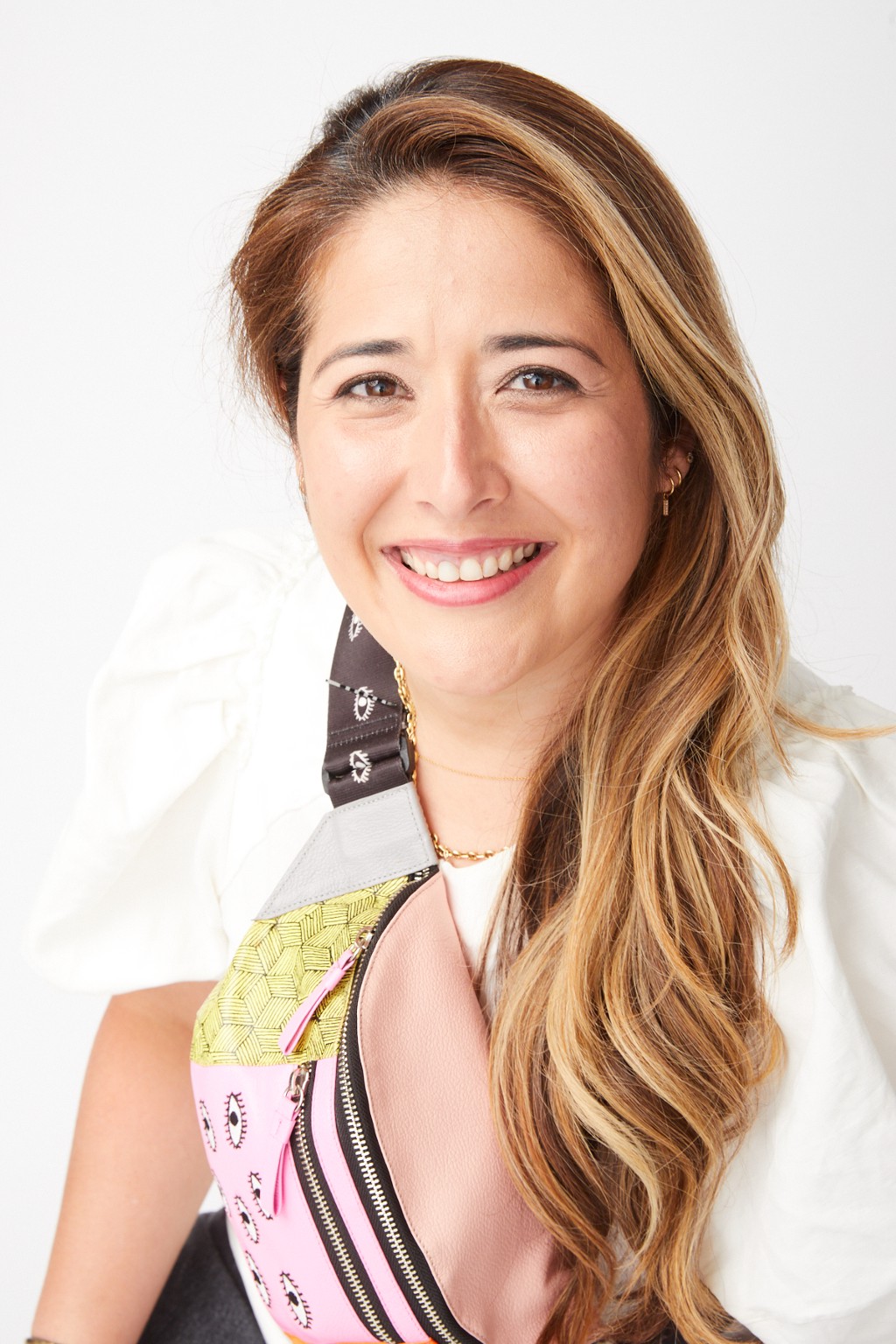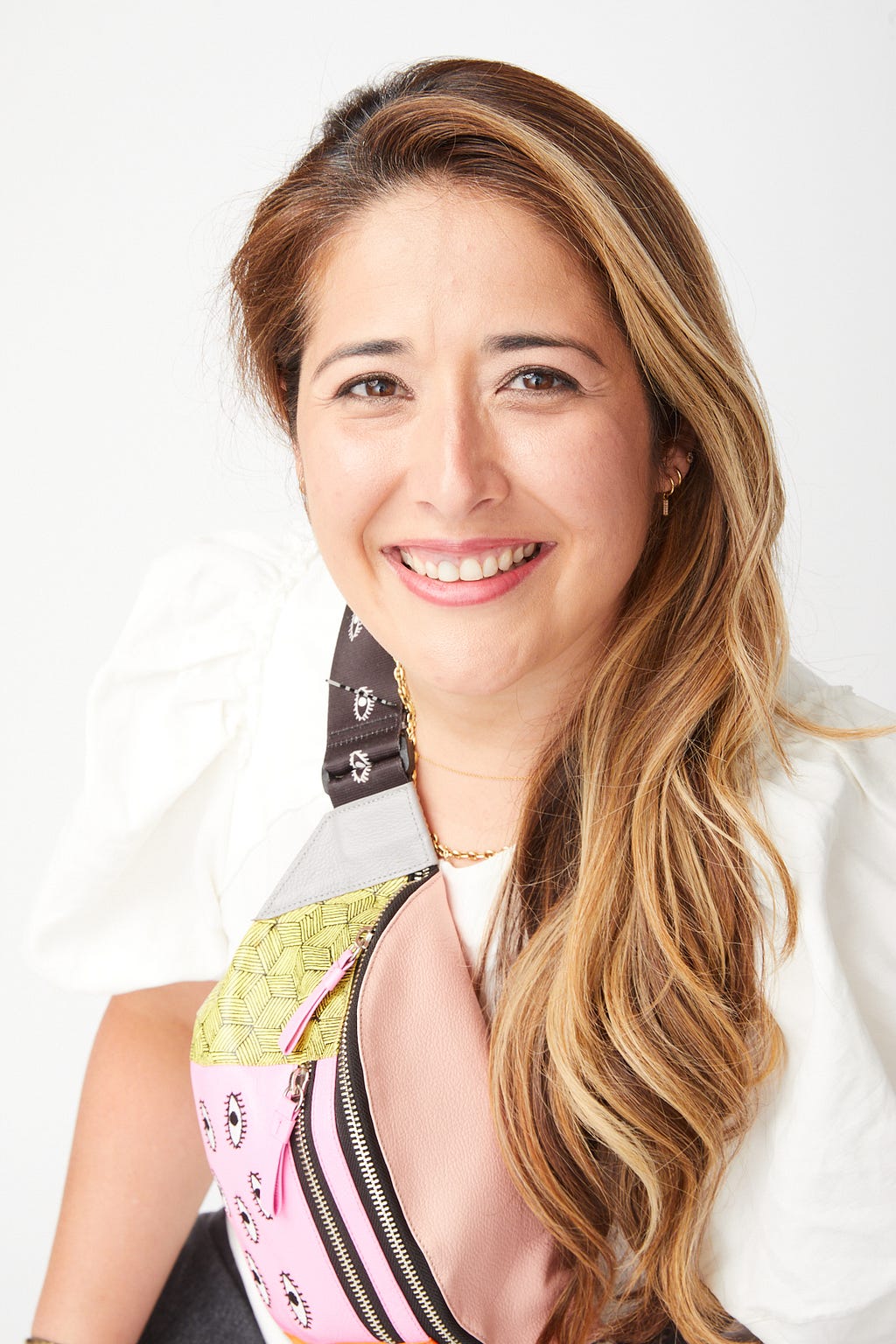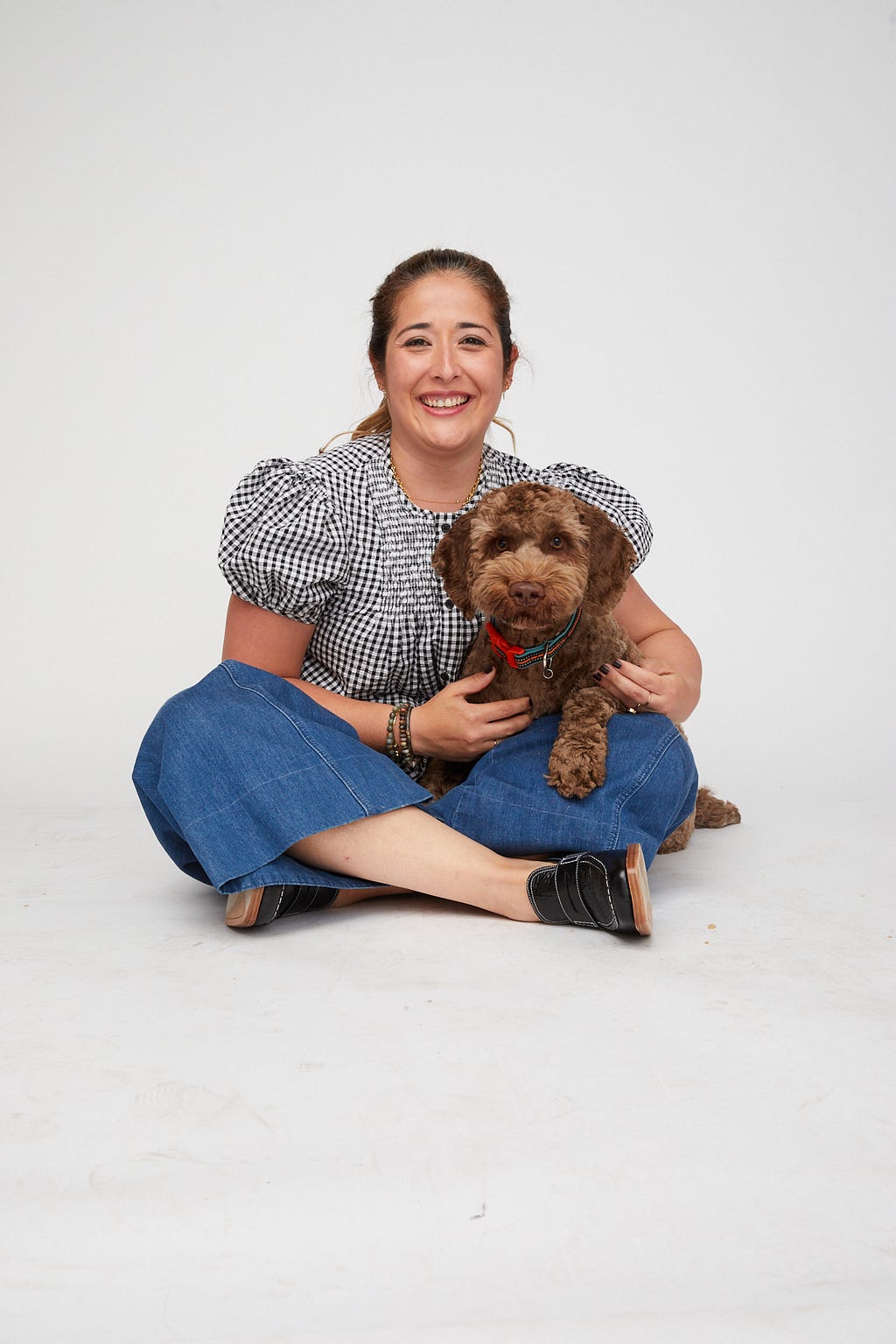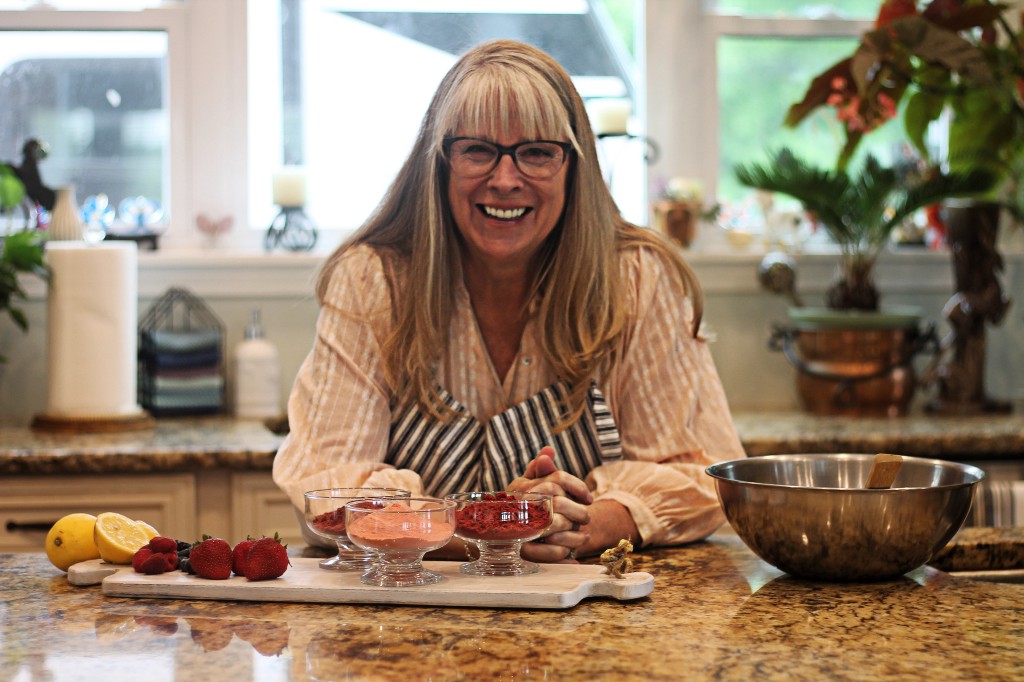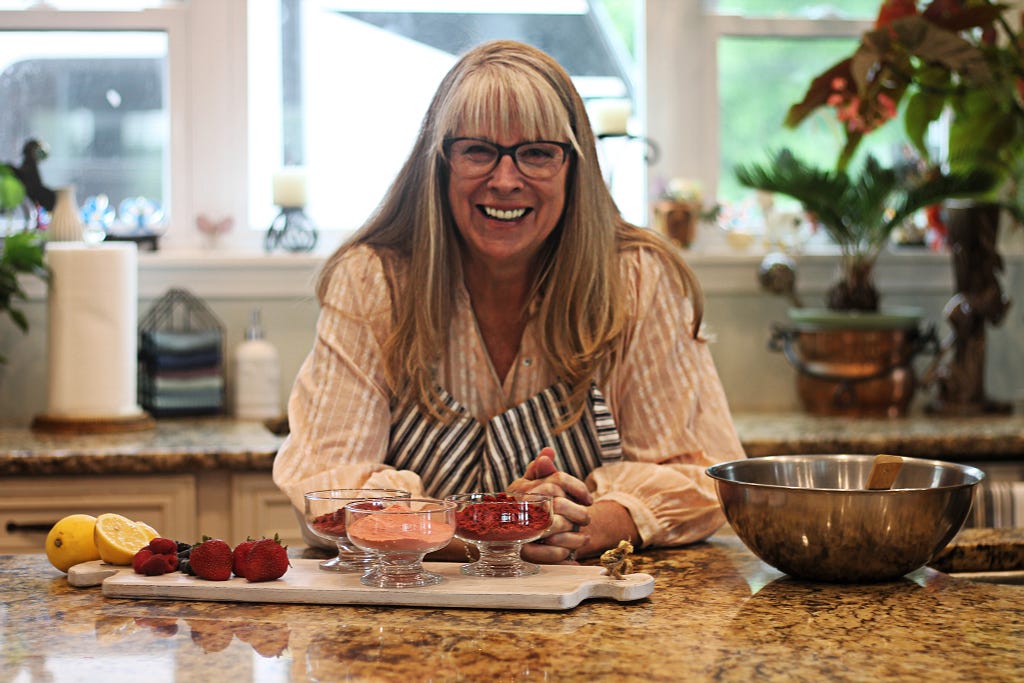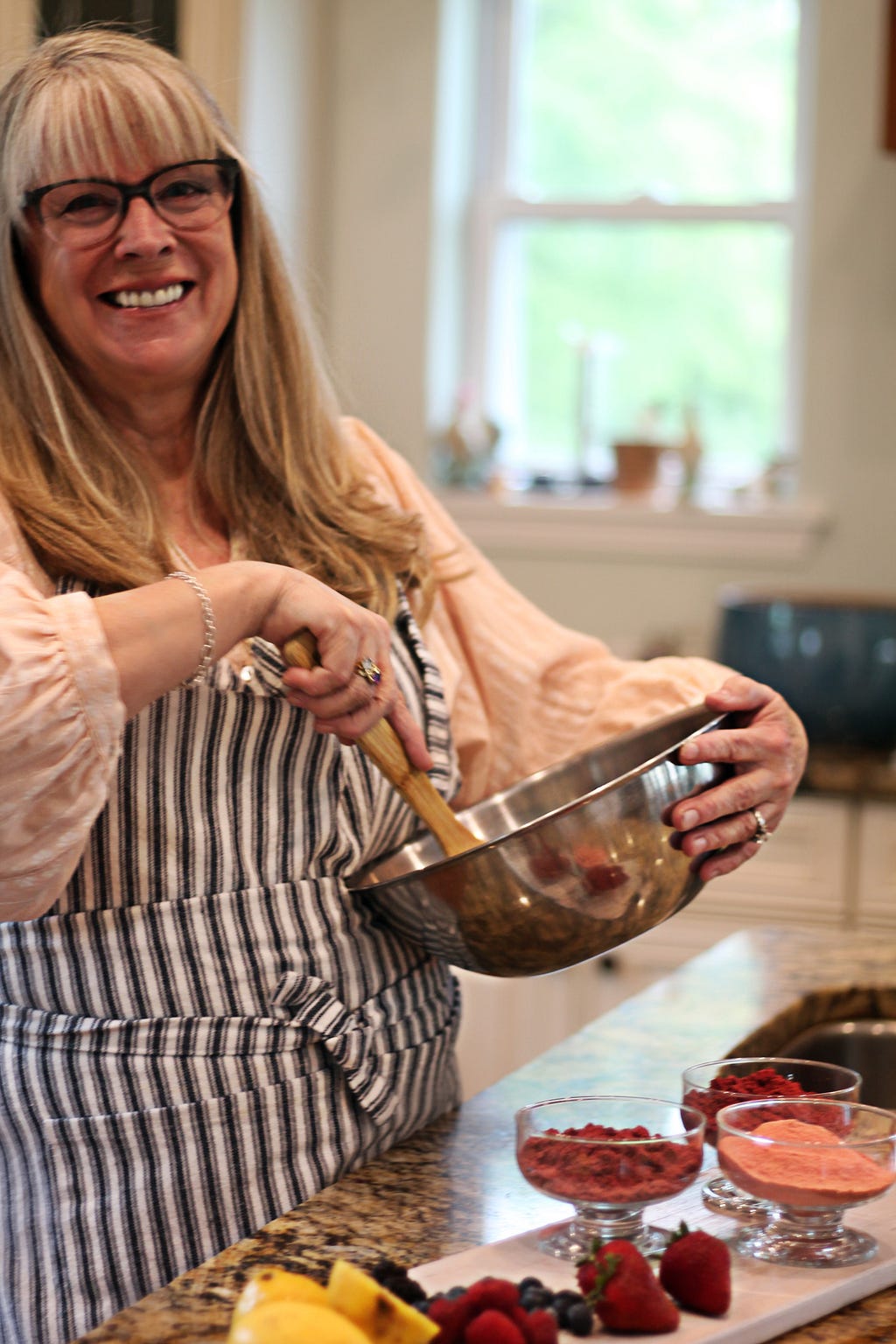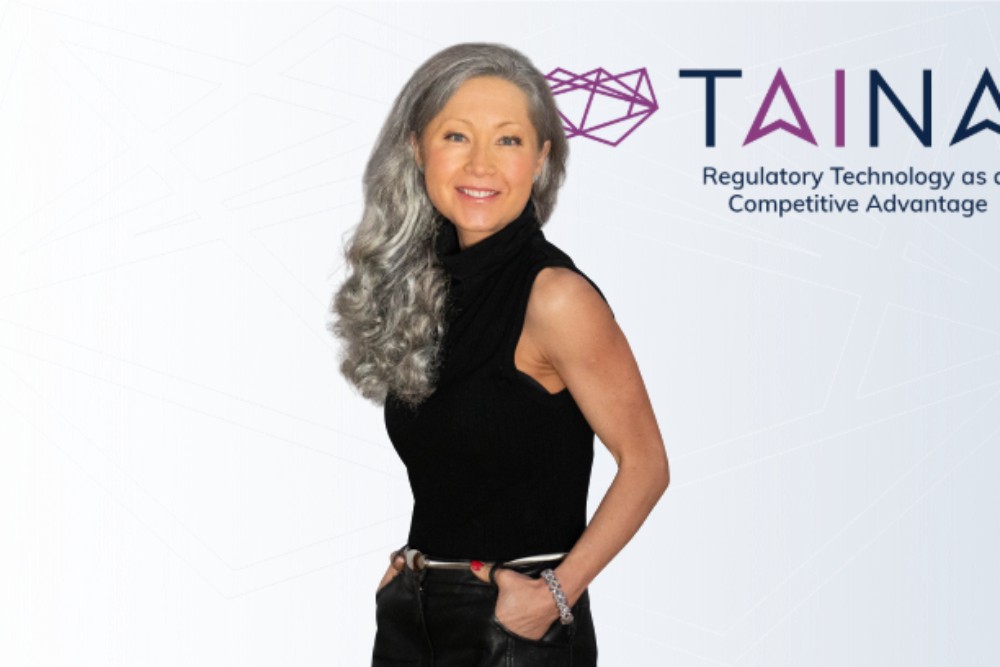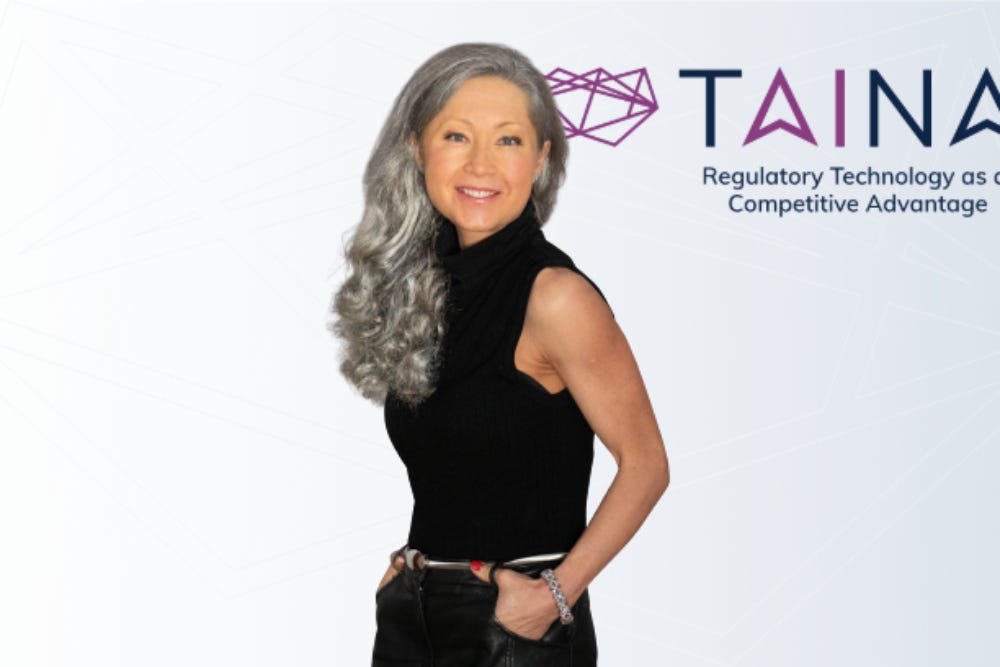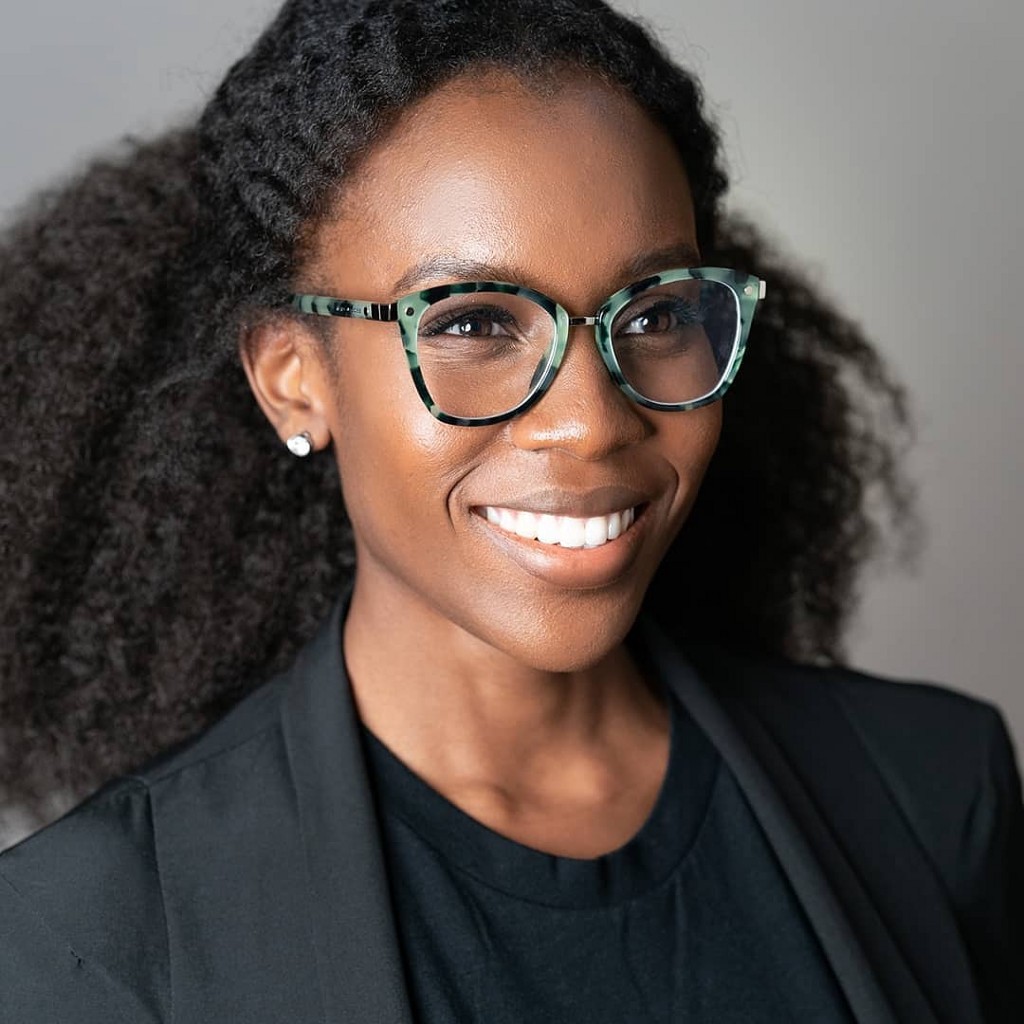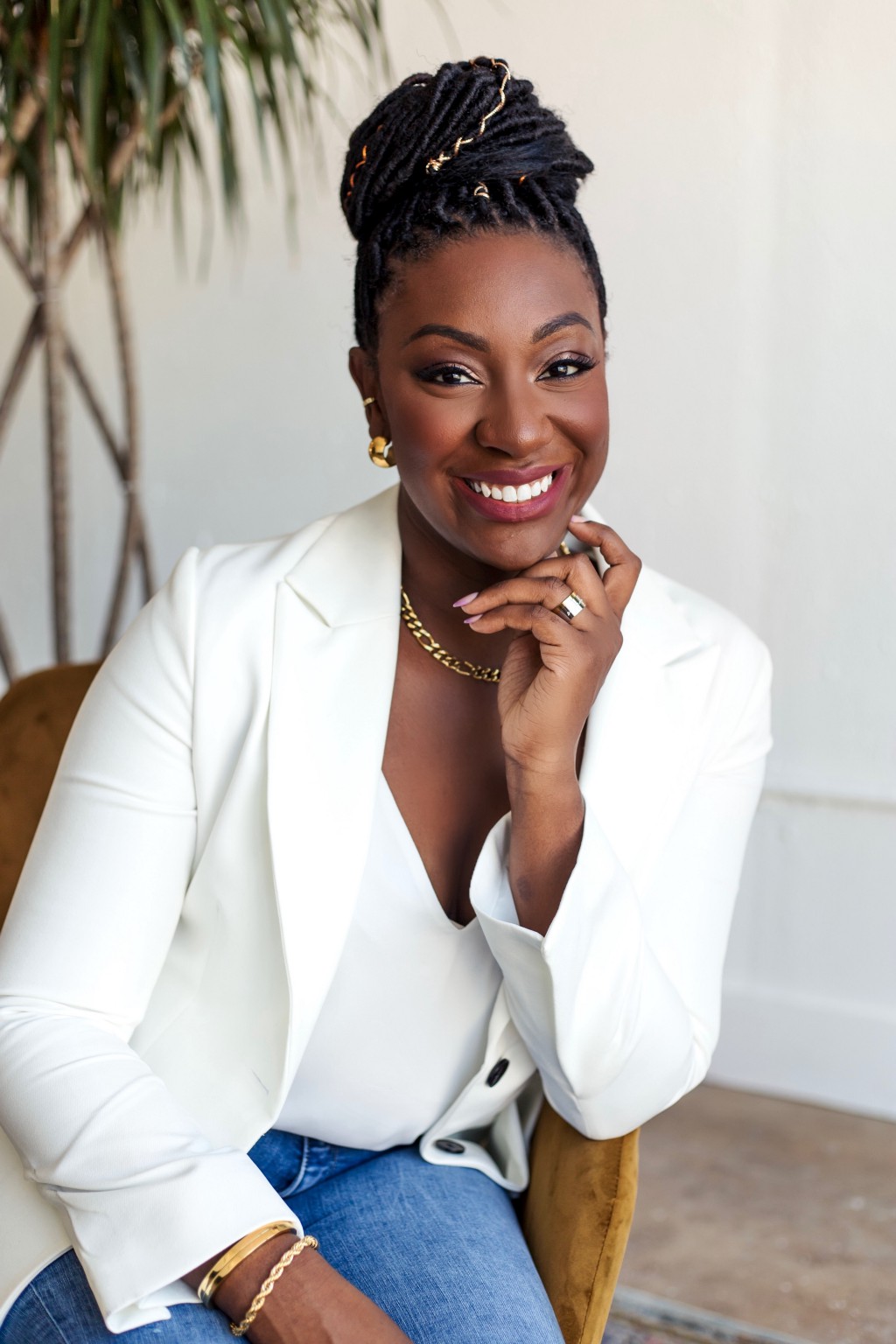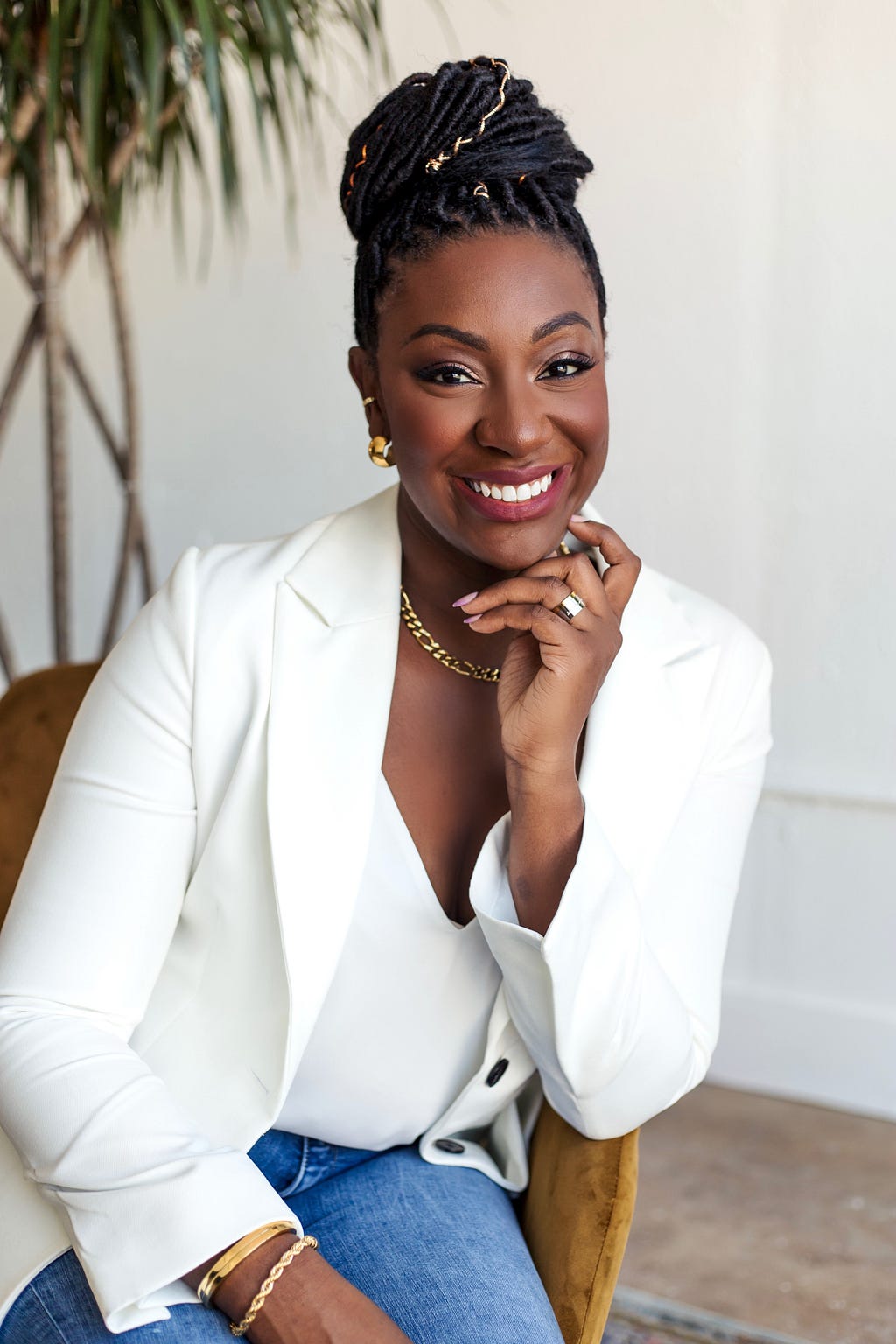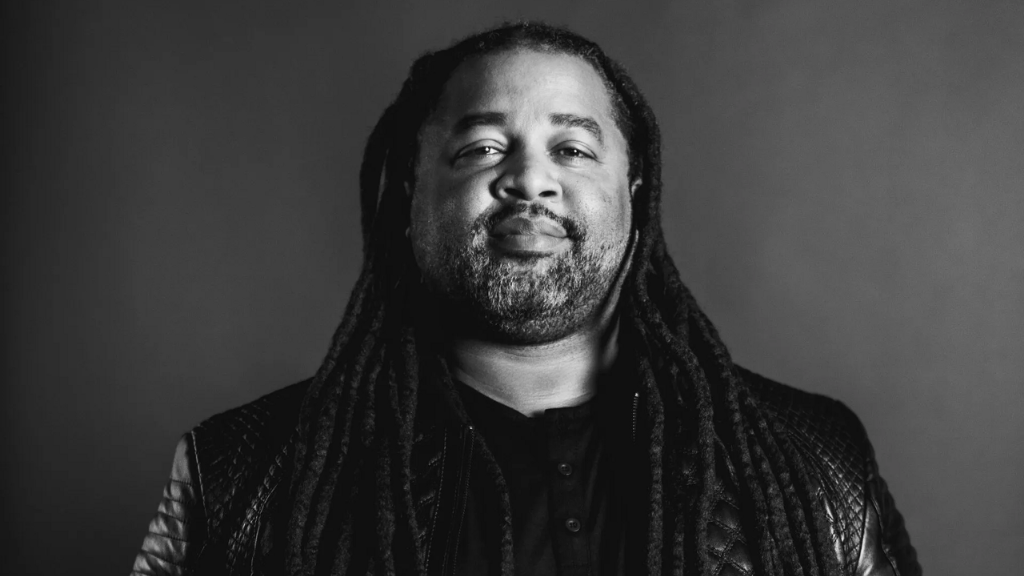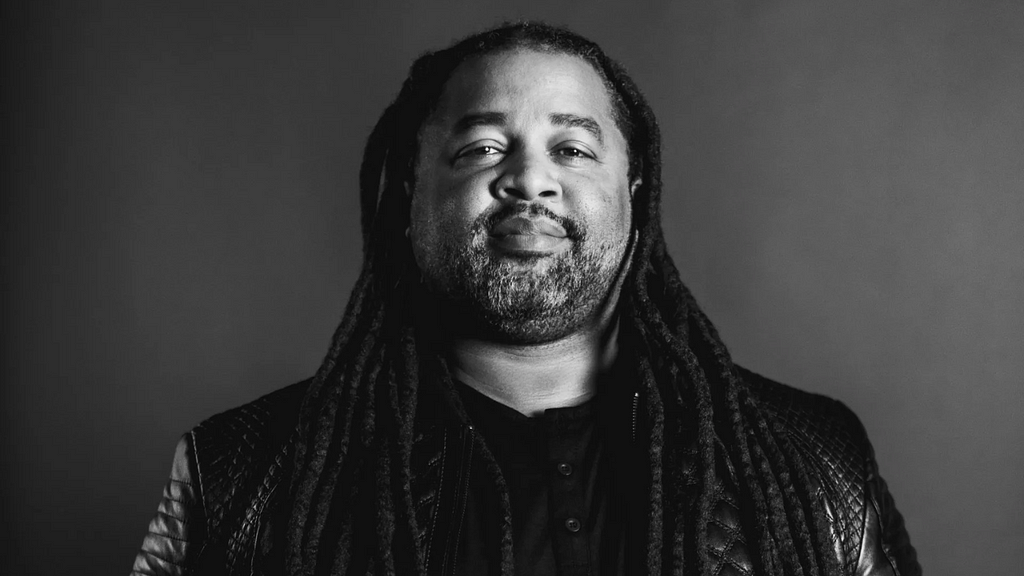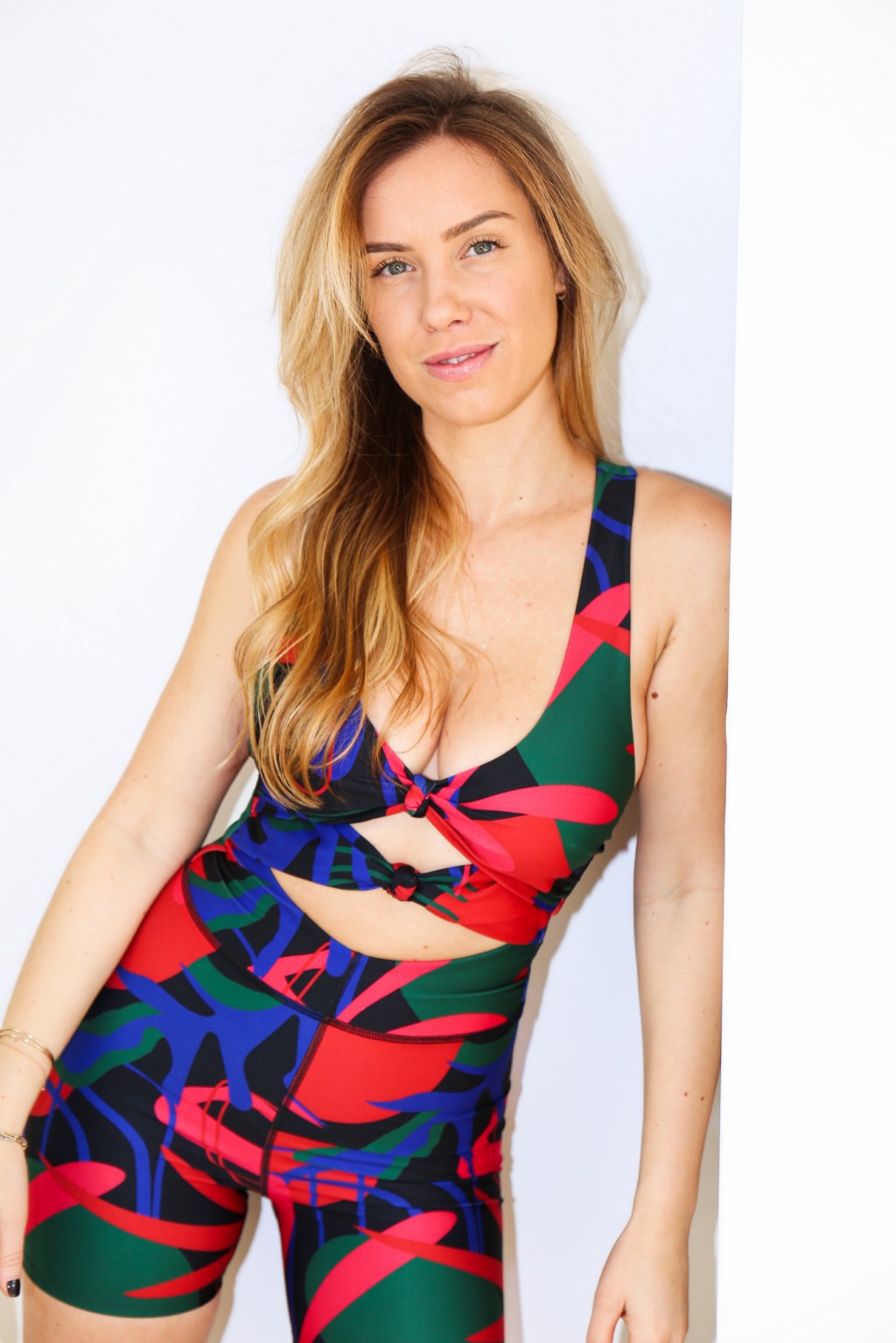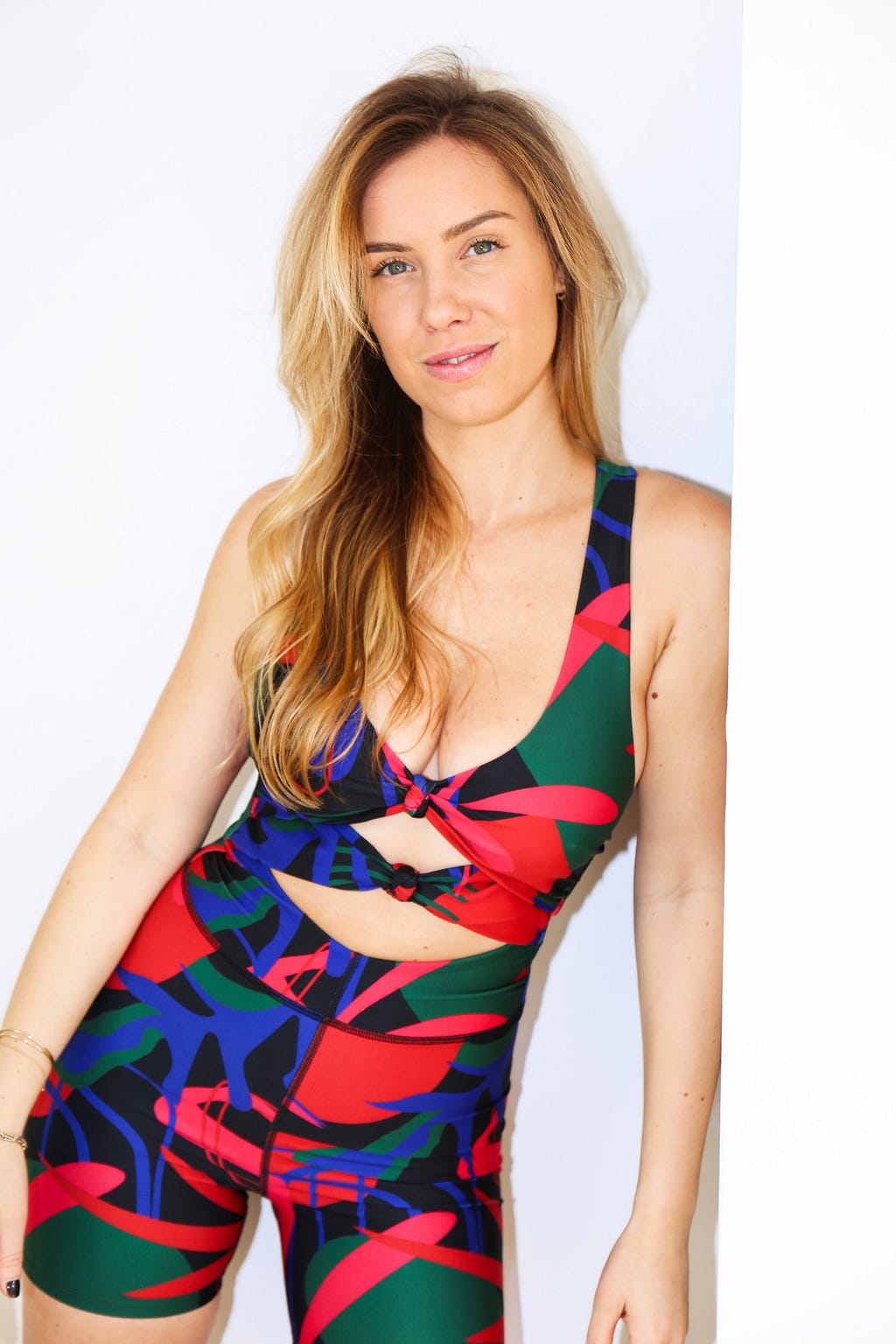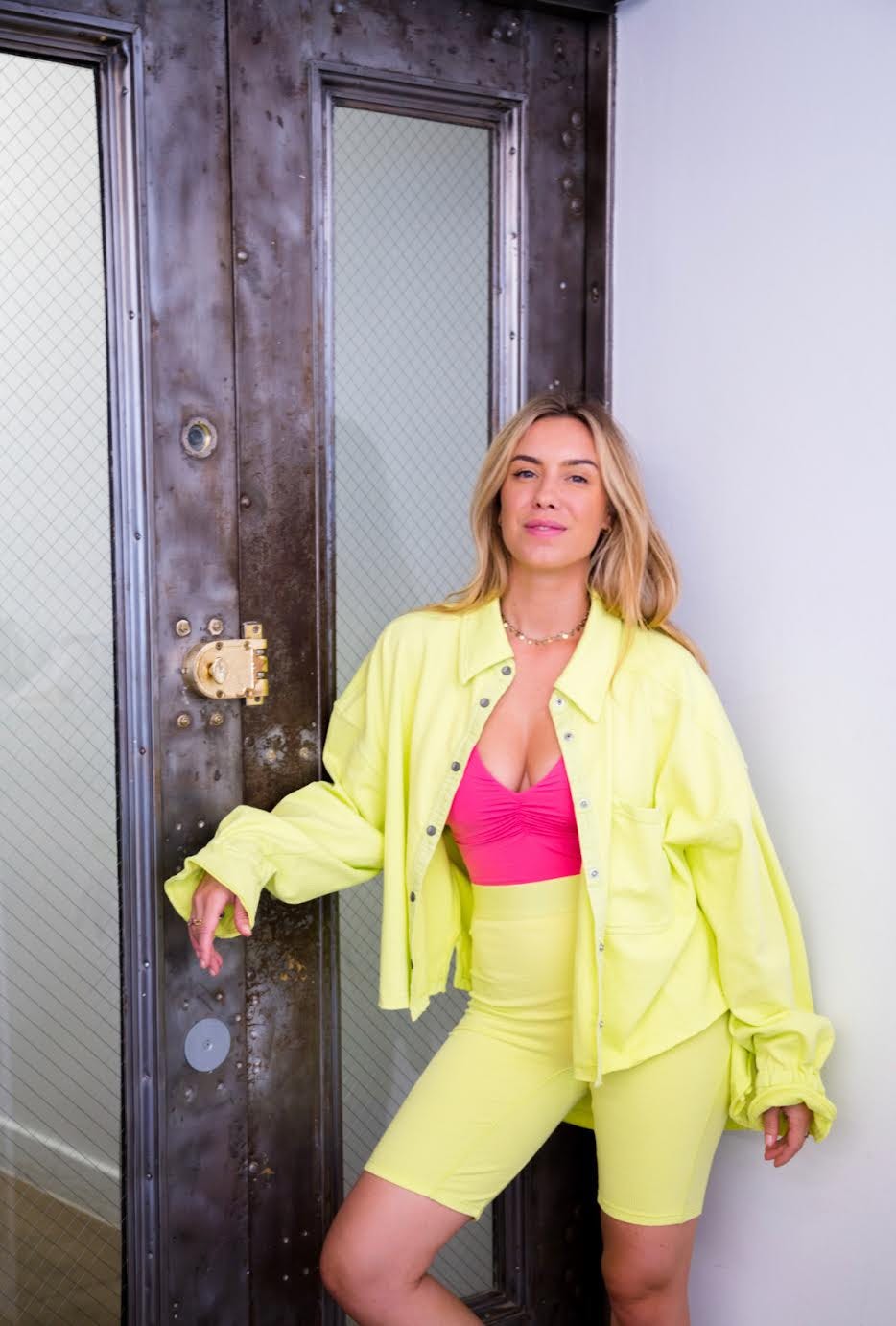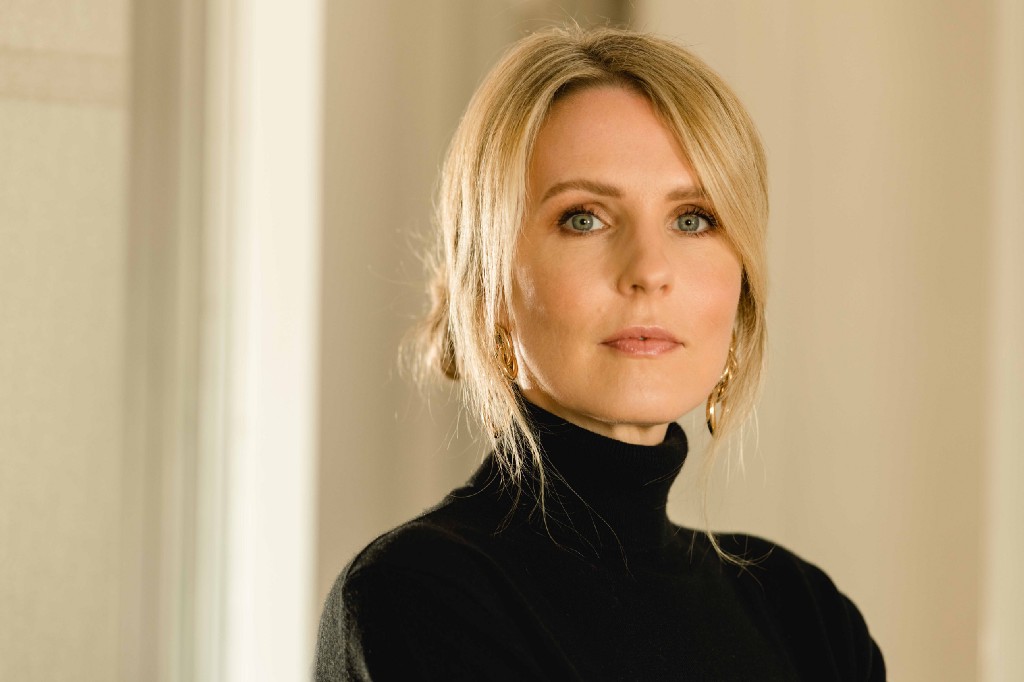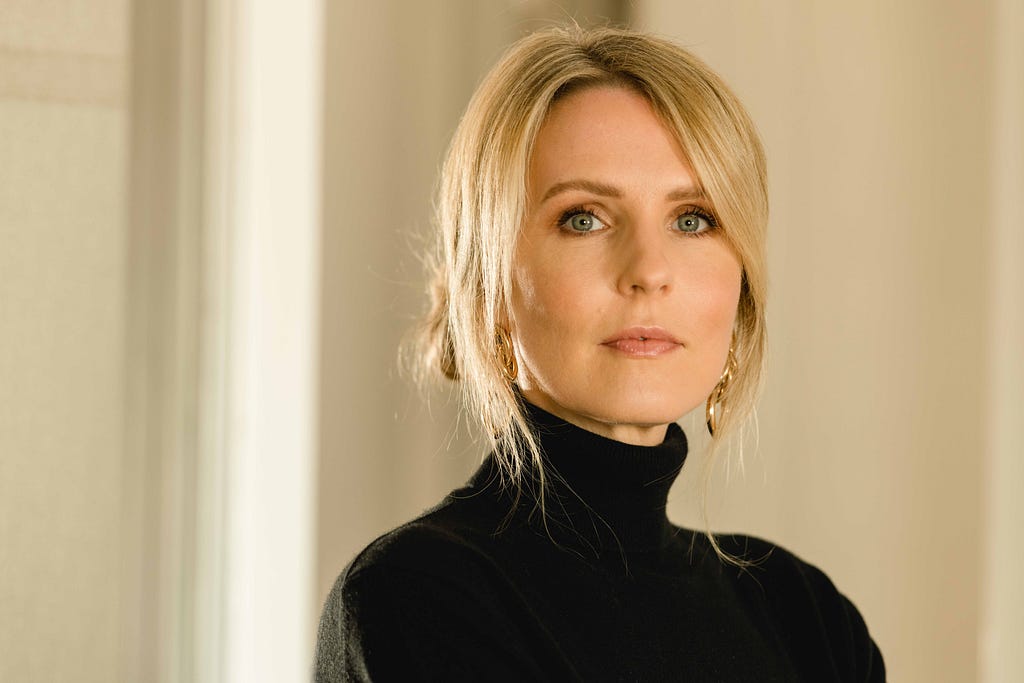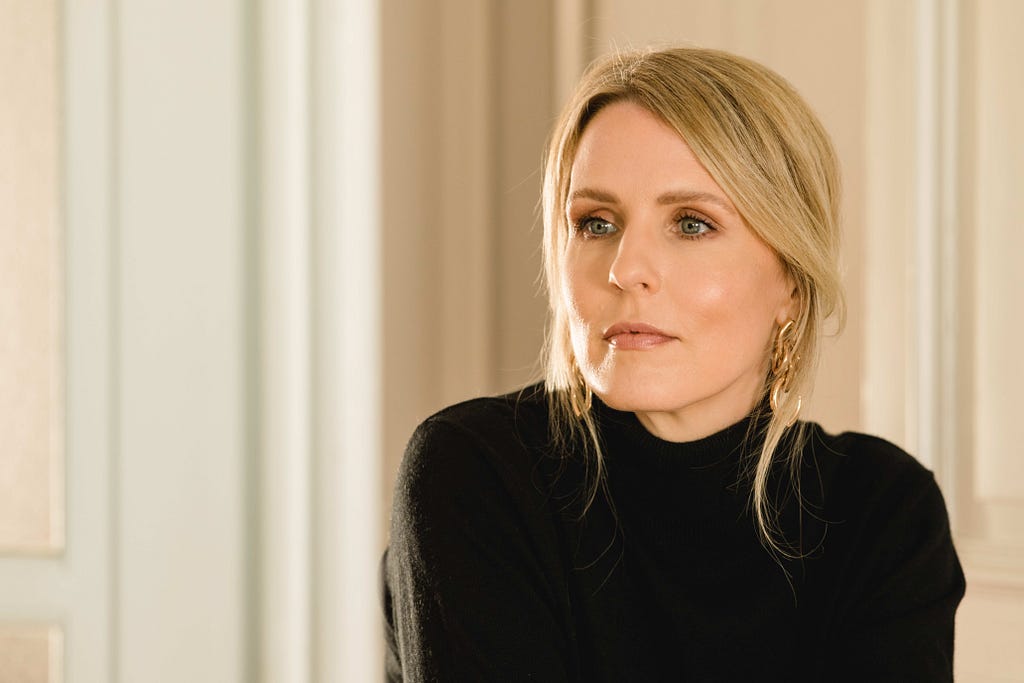An Interview With Candice Georgiadis
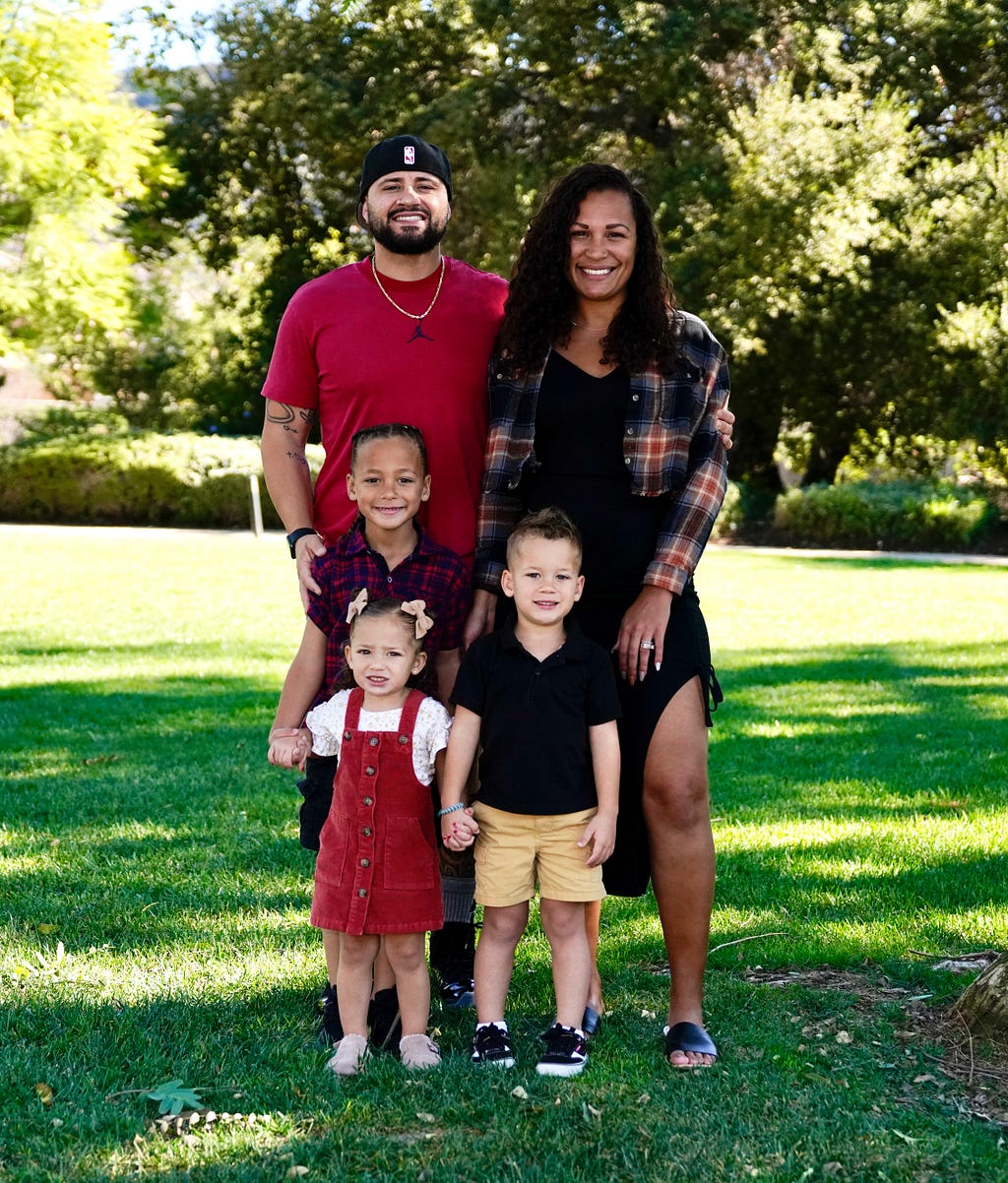
Work Hard, Play Hard — Being husband and wife, parenting and running a business together can all be really stressful. Having a “fun” goal to look forward to helps keep us motivated and on track with what needs to be done. When something big or exciting happens in our business, we always make sure to celebrate those wins — big or small. Whether that’s a date night or traveling somewhere new, we know that when we work hard the benefits are immeasurable.
As a part of our series about lessons from Thriving Power Couples, I had the pleasure of interviewing Dre’as and Brooke Sanchez.
Dre’as and Brooke Sanchez are the the husband-and-wife team and co-founders of BraveJusticeKidsCo., a safe, eco-friendly, and modern children’s products company. The power duo takes great pride in specializing in 100% renewable energy production and innovative technology. They are also setting the standard for transparency and safety in the industry.
Thank you so much for doing this with us! Can you tell us a story about what brought you two to your respective career paths ? ?
When we met, my husband was just transitioning out of the military due to service-related injuries and I was a full-time nanny making minimum wage. The transition out of the military was tough for us, especially for my husband because he had felt he lost his sense of purpose. After living paycheck to paycheck, we decided this was not the lifestyle we wanted to raise a family in. So, we knew we had to make some big changes in order to provide the life we wanted for not only ourselves but our kids as well. Since I had always worked in jobs involving kids, it gave me a lot of time to use different types of baby products. I came up with the idea of a mommy and me training spoon; I knew this idea would help little ones learn the function of getting the spoon to their mouth, as well as practice their motor skills, with the help of their parent guiding the spoon. While in the process of getting it patented and produced, we came up with our first product, our silicone collapsible snack cup. This was the beginning of our online business, BraveJusticeKidsCo. Three years later, we have 20+ products as well as multiple patents and have since made the industry safer with our push for transparency of safe manufacturing.
Can you share the most interesting story that happened to you since you two got married?
Not one, but two different times we have the opportunity to take our business on Shark Tank but it didn’t quite pan out. The first time, we had to make the tough decision to pull out because our patent paperwork was still pending, and then the second time didn’t work out because the cost of living and the cost of running a business went up so they had to make some cuts; since we were the youngest business to make it on their shortlist, we, unfortunately, got cut. We were so excited about the opportunity both times, especially since we made it so far in the process, but things don’t always work out the way you plan, and that’s okay. Dre’as and I learned so much from the experience and we learned a lot more about our brand, our direction, and each other. Above everything else and despite the outcome, we got to work through it all together and now we look forward to the next because we don’t give up!
Can you share a story about the funniest mistake you made when you were first starting? Can you tell us what lesson you learned from that?
Starting a business during the pandemic was a challenge in itself! When we first started, we were still learning the business and how to properly make it function smoothly and on top of that, raising three children! One huge mistake that we made was having all of our product containers being stuck at the port during one of the busiest times of the year. The biggest thing we learned from that was: 1. Make sure we have enough inventory in stock for 3 months at all times, and 2. Make sure we leave space in our timeline for errors.
What do you think makes your company stand out? Can you share a story?
Definitely our attention to detail in regards to safety. We have implemented a beta program with our own products which tracks and verifies the safety data for any given product. We soon will launch this to other companies which will help the consumer feel safer when purchasing products from retailers by seeing that the laboratory results and other relevant information concerning children’s products have been verified by a credible organization. This is our patented software that will help ensure transparency in manufacturing safety practices with our Safely Made™ authentication system.
Are you working on any exciting new projects now? How do you think that will help people?
We are always working on new products and designs. This year we really focused a lot on our patented SiliSteel™ line, which started with our SiliSteel™ UnBreakabowl™, and to follow is the SiliSteel™ dinnerware combos and singles. The combo will include the bowl, cup and plate –all with patented technology. Each will also be sold as singles as well. Our SiliSteel™ drinking cup is for stage two, whereas our transitional Teenie Tiny™ cup is for stage one. Our stage two cup will focus more on the older children who are ready to transition to a big kid cup.
The idea behind our SiliSteel™ technology is to make the silicone products more stable. We manufactured a specialized steel ring inside of the silicone product to give it the sturdiness that silicone alone cannot offer. This also makes the product more durable, and increases its quality with Dual Thermal Layer Technology™, which we also invented to help the food retain its heat better when inside our SiliSteel™ products.
What advice would you give to other CEOs or founders to help their employees to thrive?
We believe in publicly recognizing and giving incentives to contractors and employees who work hard.
Most people like to be rewarded for their hard work and people work better in an environment that rewards them for their consistency. We also believe in democracy in the work place. All of the people who are part of the end product have a say in the direction and focus of the business’s daily operation.
How do you define “Leadership”?
Leadership is a measurement of the ability to make people around you better. This ability enables a person to inspire and lead a group of people successfully.
None of us are able to achieve success without some help along the way. Is there a particular person who you are grateful towards who helped get you to where you are? Can you share a story about that?
Gratefully, there are tons of people who have helped us from the start and continue to do so along the way. Starting with our family, who have always supported us in our endeavors and who speak positively towards our goals and dreams. We also have a friend who owns Legend and Co. who is a year ahead of us with his business and has been incredibly helpful through our e-commerce journey. When you surround yourself with positive, successful people, positive and successful results become more possible.
How have you used your success to bring goodness to the world?
We definitely would not be where we are at today without our community. In return, we prioritize giving back. We actively participate in community events and have donated supplies, products, and necessities for moms and babies, even baby food, for multiple events. We have also used our success to sponsor our local youth soccer team, as well as donate to organizations like the Olivia Hudson Foundation, who increase awareness of brain cancer in children. Our business as a whole is also setting the standard for eco-friendly production by using 100% renewable energy for production. We are truly 100% eco-friendly from beginning to end.
What are the “5 Things You Need To Thrive As A Couple”? Please share a story or example for each.
- Resilience — Never give up on each other no matter how tough a season may be. Fight for what you want and what you believe in, and always remember to support and respect each other’s projects, ideas, or dreams. After all, we are a team and we both just want to achieve the most we can and succeed to the highest level possible to be able to pass it all down to our children one day.
- Communication — Always communicate with each other about personal and business needs. Sharing your needs, thoughts and ideas out loud to one another help with not only better more fluid communication but your connection as a couple as well.
- A Plan — Having a plan and schedule each day, whether it’s for your business or your personal life, always makes transitions smoother. When everyone is on the same page and can see schedules, deadlines, appointments, etc. written down it leaves less room for error and confusion.
- An Open Mind — When you work side by side with your partner you are going to be exposed daily to new things, thoughts and ideas; having an open mind to listen and consider those things can take you to new levels in your business and relationship. Typically, you each have your own ideas, but if you brainstorm together and have an open mind to what each other is saying, the results can be brilliant!
- Work Hard, Play Hard — Being husband and wife, parenting and running a business together can all be really stressful. Having a “fun” goal to look forward to helps keep us motivated and on track with what needs to be done. When something big or exciting happens in our business, we always make sure to celebrate those wins — big or small. Whether that’s a date night or traveling somewhere new, we know that when we work hard the benefits are immeasurable.
You are people of great influence. If you could inspire a movement that would bring the most amount of good to the most amount of people, what would that be? You never know what your idea can trigger. 🙂
We would inspire a movement of parents to start being more proactive with product safety. So many times, little shops or online businesses are selling items that have never been tested in a laboratory to know exactly what is in the material that our children are using, and many times claim to be “safe”. We advise parents to not just simply trust a brand based off claims of being “safe”, but to challenge brands to provide their product testing information publicly, for everyone to see the proof that the products are safe. We want to encourage parents to carefully inspect anything that could affect the safety of their children and to never be afraid to ask more questions.
Can you please give us your favorite “Life Lesson Quote”? Can you share how that was relevant to you in your life?
“You can grow ideas, in the garden of your mind” — We absolutely love this quote from Mr. Rodgers, so much so that we actually put it on the bottom of our gardening pots! This quote encapsulates the mindset of our business and in the way we raise our children. We always encourage thinking of new ideas and innovating the way in which humans do everyday tasks; big and small, there is always something to make better-and it all starts with an idea.
We are very blessed that some of the biggest names in Business, VC funding, Sports, and Entertainment read this column. Is there a person in the world, or in the US with whom you would love to have a private breakfast or lunch with, and why? He or she might just see this if we tag them 🙂
We have been on Mark Cuban’s radar, so if we could have a meeting with anyone it would be him. He is an innovator so we know he would respect our grind and eagerness to succeed. Most importantly, he has the contacts and experience to help take our business to the next level.
How can our readers follow your work online?
Follow all of our social media platforms, @BraveJusticeKidsCo! We welcome all comments and feedback, and encourage you to like our posts, and most importantly, share with friends and family!
Thank you so much for joining us. This was very inspirational.
Lessons from a Thriving Power Couple, With Brooke and Dre’as Sanchez of BraveJusticeKidsCo was originally published in Authority Magazine on Medium, where people are continuing the conversation by highlighting and responding to this story.


